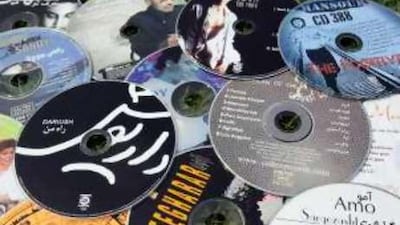Effie-Michelle Metallidis visits the travelling home of Iranian DJs in Dubai.
DJ Soheil Ray is focused, his eyes flitting from his mixers to his CDs as he weaves an Iranian rap track over a reggaeton beat. Beyond his booth, on the dance floor of Plan B, a club in Wafi City, it's a mob scene: slicked-up Iranians losing themselves in the melody, pausing now and then to shout song requests in Farsi.
Ray is spinning at Hush, one of many Iranian nights organised by Club Persia, a Dubai-based events company built to tap into the growing Dubai market of Iranians with money to burn and an appetite for nightlife. Its promotional material trumpets Persians as "the first historic people".
"It's the old residents of Dubai who come every night," says Iman Attarzadeh, 28. "I know everyone, I have to go to every table." Attarzadeh is one of Dubai's first Iranian DJs. Born in Mashhad, he moved to Dubai when he was seven, and started spinning in 2002. Back then the city had next to no Iranian scene, but Attarzadeh quickly fell in with Alex Golzari. Attarzadeh gave Golzari a demo of Iranian pop mixes, Golzari founded Club Persia and the rest is history. Today Attarzadeh is recognised as the forebear of the line of young Iranian DJs in Dubai, most of them on Club Persia's roster.
Though he's experimented with house and hip-hop, Iranian pop has always been Attarzadeh's mainstay. His ever-growing collection of hundreds CDs, a few of which he lugged over from Iran, but most of which he bought from the well-stocked Virgin Megastore in Dubai or Country Video in Deira. "I like to support my people and my country," he says, adding that he enjoys the response he receives for his allegiance. "Persian music is not something that plays everywhere and all the time," he explains. "You have to wait for it." Whenever he tries to focus on non-Iranian music, protests break out. "They always say, come on man, we want to move our asses!"
Upstairs, DJ Kouroush, another Club Persia DJ, is spinning in the VIP room, his face a solemn mask of concentration. Originally from Tehran, he came to Dubai in 1999 and started spinning in 2005. "What inspires me and gives me energy is just to see people screaming or liking something that I do," he says. "Otherwise, I get fed up with it. You can only get four or five new tracks of Persian music a month, and Persians like classics all the time, so you have to keep on playing old music."
Back downstairs, Ray is operating on a similar principle: Rezaya, Mansar, even an old classic from Mehrshad - each track wins the DJ love from the crowd. But bhangra, house, dance and hip-hop all work their way in too. This is no small feat: the same traditional rhythm that makes Iranian pop so beloved make it one of the more difficult genres to mix on a dancefloor. As Kouroush explains it to me, "House music has a common rhythm, but Persian doesn't." Some DJs deal with this by isolating the melody and bass for a while, searching for an opportunity to mix a complex beat in. Some pull back to "just drums and high-hats" for a while in hopes of working a new melody into the loop. Pros like Attarzadeh work it both ways, identifying the best combinations almost subconsciously.
Kouroush likes rock music best, and will rarely be caught listening to the commercial sounds he plays in the club. "I prefer underground artists from inside Iran," he says. "Thank God we can get their music."
Today, tracks from up-and-coming hopefuls are easily distributed over the internet and other new media outlets that cater to Persian proclivities, like the Dubai-based Persia Music Channel. Kouroush is grateful for the chance to hear new talent. "Underground music in Iran is a combination of pop music and local influence. Especially with rap, the lyrics are meaningful. I don't listen to a song unless it has something to teach or say." Tonight at Plan B, the songs are saying "raqs" (dance). And we do, fulfilling the wish of every DJ, Iranian or otherwise.
@email:mmetallidis@thenational.ae

